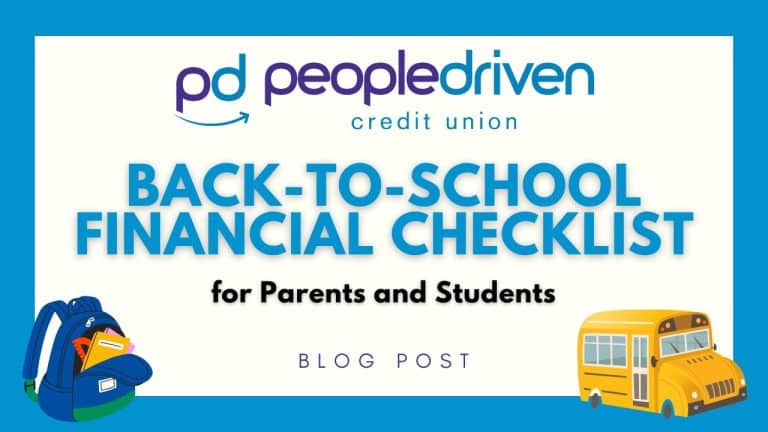Credit cards can be a great way to build your financial strength when you know how to use them wisely. With the right approach, they can help you manage expenses, earn rewards, and even boost your credit score. There’s a lot of information out there, and it’s easy to run into common myths that can make credit cards seem more complicated than they really are. That’s why we’re here to help set the record straight.

Let’s walk through some of the most common credit card myths we hear from members so you can feel confident, make smart choices, and get the most out of your card.
Myth #1: You Have to Carry a Balance to Build Credit
False. You do not need to carry a balance (or pay interest) to build your credit score. The best way to build a strong credit history is to make small purchases and pay them off in full every month. Carrying a balance only means you’re paying interest unnecessarily.
Myth #2: Credit Cards Are Only for Emergencies
While a credit card can be helpful in a pinch, using it only for emergencies limits its full potential. Responsible everyday use like groceries or gas, paid off each month can build credit and earn rewards. Just make sure you’re spending within your means.
Myth #3: Closing a Credit Card Helps Your Credit Score
In most cases, closing a card can negatively impact your credit score by reducing your available credit and shortening your credit history. If the card has no annual fee and you’re not tempted to overspend, it may be better to keep it open and use it occasionally.
Myth #4: Applying for a Credit Card Will Wreck Your Credit
Applying for a credit card does result in a slight, temporary dip in your score (usually a few points), but it’s not a “credit killer.” As long as you don’t apply for too many cards at once, the long-term benefits of building credit can outweigh the initial drop.
Myth #5: All Credit Cards Are the Same
Nope. Credit cards vary in rates, rewards, fees, and perks. Some offer cash back, some offer travel points, and others like PDCU’s Rewards Driven Credit Card give you both flexibility and earning potential with no annual fee.
Myth #6: You Shouldn’t Use More Than 30% of Your Limit
This one is based on a fundamental rule, but it has been misinterpreted. Using less than 30% of your available credit is ideal for maintaining a strong credit score. But lower is better. If you can keep your utilization under 10%, even better!
Myth #7: You’re Stuck with a High Interest Rate
Not always. Some credit unions (like us) offer lower APR options than most big banks. And if your credit has improved since you opened the card, you may be eligible for a rate review or balance transfer to a better offer.
The Bottom Line: Knowledge Is Power
Credit cards don’t have to be confusing or risky. The key is using them with purpose, staying informed, and choosing a card that fits your lifestyle. Whether you’re building credit or maximizing rewards, People Driven Credit Union has your back.
Ready to get more out of your credit card? Explore the Rewards Driven Credit Card and discover more innovative ways to spend, save, and earn.





